Gallery Network
Shop the Show: A New Santa Fe Exhibition Reconsiders Two Fundamental Shapes With Fresh Eyes
"Circles and Squares" at Addison Rowe Gallery features works by Emil James Bisttram, Raymond Jonson, Stuart Davis, and Ilya Bolotowsky.
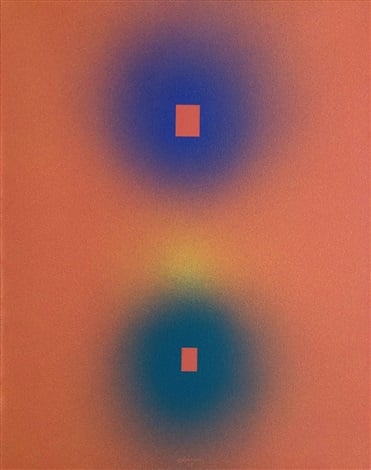
"Circles and Squares" at Addison Rowe Gallery features works by Emil James Bisttram, Raymond Jonson, Stuart Davis, and Ilya Bolotowsky.

Artnet Gallery Network

Every month, hundreds of galleries showcase new exhibitions on the Artnet Gallery Network—and every week, we shine a spotlight on the exhibitions we think you should see. Check out what we have in store, and inquire more with one simple click.
What You Need to Know: The circle and the square are the most primary of shapes, ones we learn to recognize as small children. In the history of art and architecture, these shapes have factored so fundamentally, it’s easy to take their presence for granted. This exhibition, curated by Matthew Rowe, brings together a bevy of 20th-century Modernist works (primarily dating from the 1930s through the 1970s) by well-known artists like Stuart Davis, as well as spiritualist artists of the Southwest like Raymond Jonson and Emil James Bisttram, who have gained more recent reconsideration.
Why We Like It: While Modernist discourse has traditionally centered on formalist concerns, this exhibition considers the compositional elements of the circle and the square in Modern art within a richer, longer tradition of meaning dating back to antiquity. This exhibition is part of a longer research project for Rowe, who is currently working on a book about the lasting and changing symbolism of these shapes throughout art history.
What the Gallery Says: “Reaching back into the mists of prehistory, the circle has represented the infinite, the divine, and the cosmic. The square came to represent the earth, the finite, and the human (four directions, four seasons, four times of day, etc). This symbolism was explored in great detail by the ancient Greeks, specifically the Pythagoreans. This idea influenced Plato and pretty much every Western philosopher and theologian who followed. This symbolism became the basis for Christian architecture, in which the crossing of a church consists of a square on the ground and a circle of the dome above. Importantly, the Roman author Vitruvius, reiterating Greek beliefs, wrote that the human body could be transcribed within a perfect square and circle. This again influenced Christian beliefs, which saw the human form as representing the intersection of the finite and infinite, human and divine (Christ is the unity of the circle and square). There is so much more to say on this topic and how the circle and square retain this meaning in almost every culture on earth… The show is really me satisfying my curiosity and exploring representations of the circle and square in modern art,” wrote Matthew Rowe.
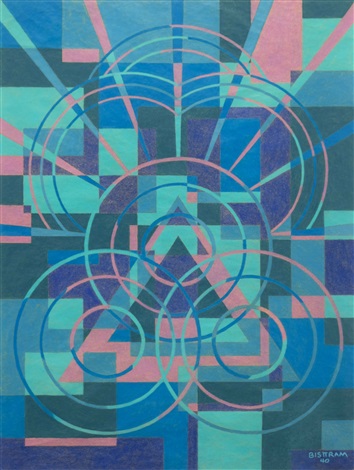
Emil James Bisttram, Untitled Abstraction (1940). Courtesy of Addison Rowe Gallery.
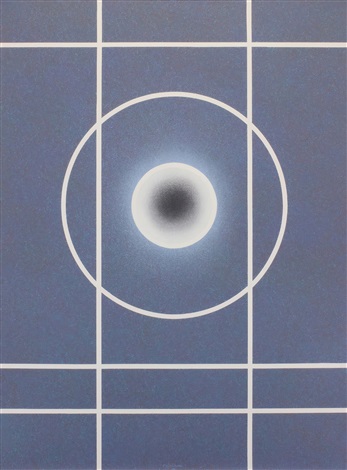
Raymond Jonson, Polymer No. 27 (1968). Courtesy of Addison Rowe Gallery.
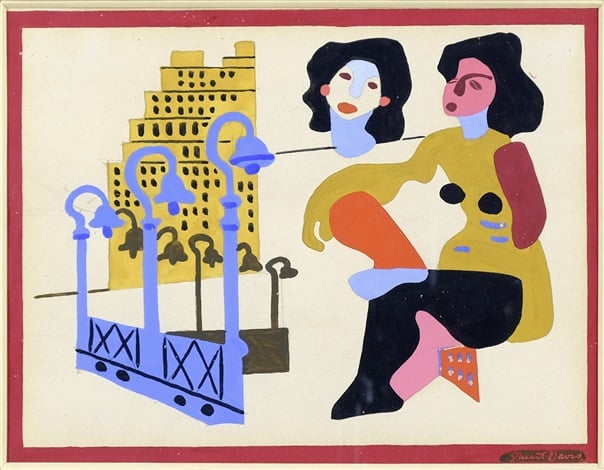
Stuart Davis, Buildings and Figures. Courtesy of Addison Rowe Gallery.
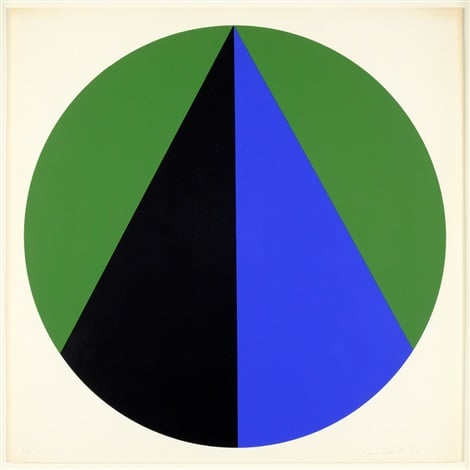
Leon Polk Smith, Untitled (1968). Courtesy of Addison Rowe Gallery.
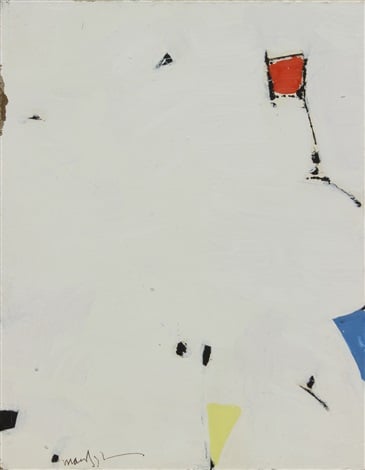
Beatrice Mandelman, Moontide (1978). Courtesy of Addison Rowe Gallery.
“Circles and Squares” is on view at Addison and Rowe through March 1, 2022.
